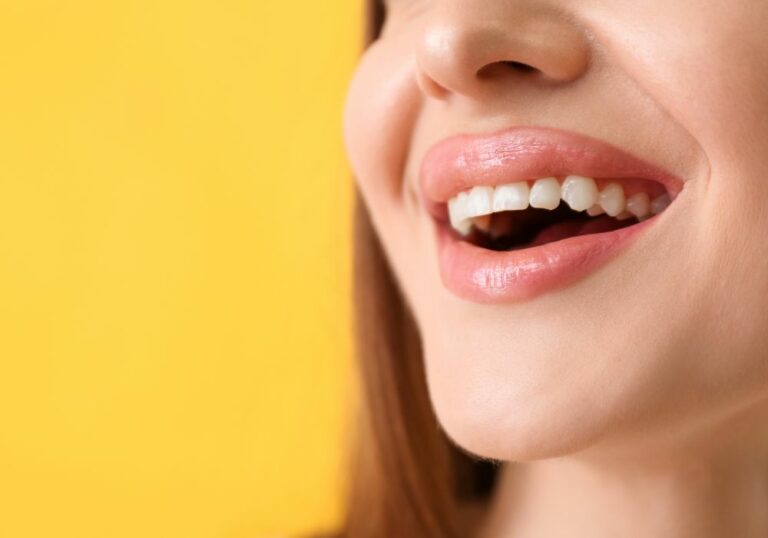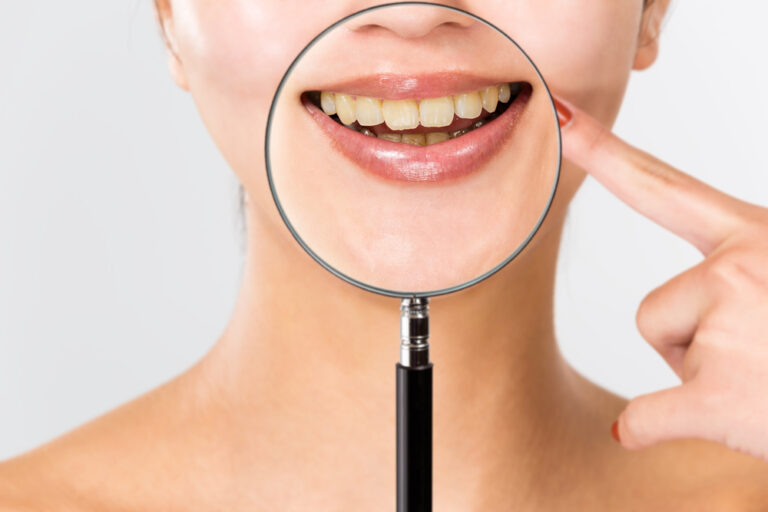Partial dentures are a popular option for those who are missing one or more teeth. They are designed to fit comfortably in your mouth and blend in with your natural teeth. However, some people may wonder if partials can cause damage to their existing teeth. In this article, we will explore this question and provide you with the information you need to make an informed decision about whether or not partials are right for you.
When properly fitted by a qualified dentist, partial dentures should not cause damage to your natural teeth. However, if your partials are ill-fitting or not properly adjusted, they can cause problems such as pressure sores, gum irritation, and even damage to your remaining teeth. It is important to work closely with your dentist to ensure that your partials fit correctly and are adjusted as needed to prevent any potential damage to your teeth or gums.
If you are considering partial dentures, it is important to discuss any concerns you may have with your dentist. They can provide you with information about the benefits and potential risks of partials, and work with you to determine the best course of treatment for your individual needs. With proper care and maintenance, partial dentures can be a safe and effective way to restore your smile and improve your overall oral health.
Understanding Partials
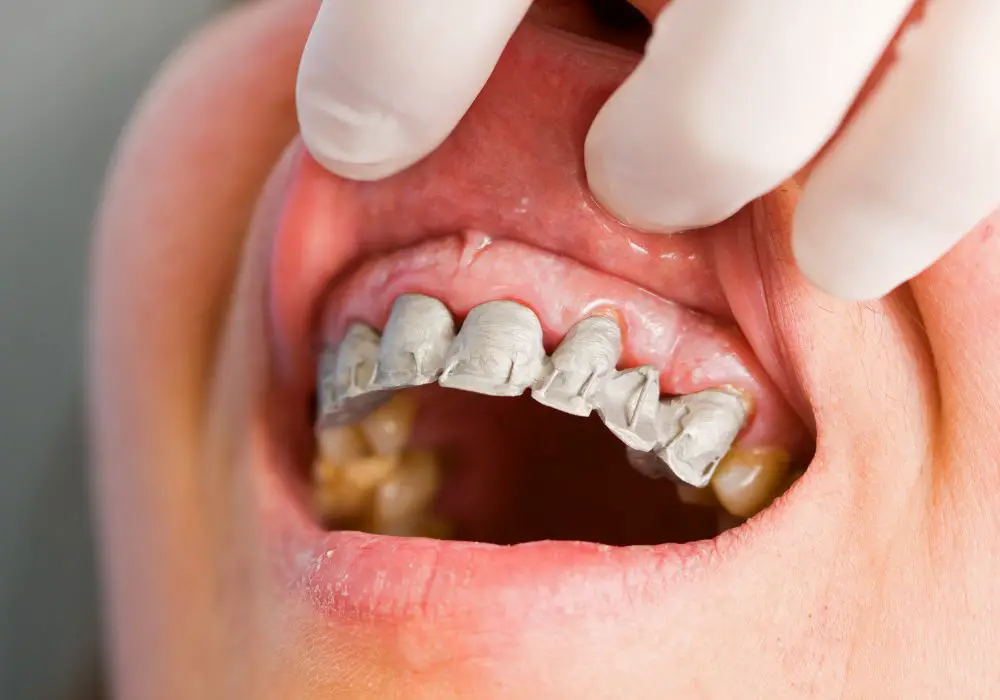
If you have missing teeth, partial dentures can be a great solution to restore your smile and improve your oral health. Partial dentures are removable dental appliances that can replace one or more missing teeth. They are designed to fit comfortably in your mouth and look like your natural teeth.
Partial dentures are made of a combination of materials, including metal, acrylic resin, and porcelain. They are custom-made to fit your mouth and match the color of your existing teeth. There are two main types of partial dentures: removable and fixed.
Removable partial dentures are designed to be taken out of your mouth for cleaning and while you sleep. They are held in place by clasps that attach to your remaining teeth. Fixed partial dentures, also known as dental bridges, are anchored in place by dental implants or by attaching to adjacent teeth.
Partial dentures can provide many benefits, including:
- Improving your ability to chew and speak properly
- Preventing your remaining teeth from shifting out of position
- Supporting your facial structure and preventing sagging
- Boosting your self-confidence and improving your appearance
However, there are some potential drawbacks to partial dentures that you should be aware of. These include:
- Discomfort or soreness in your mouth
- Difficulty speaking or eating with your dentures at first
- The need for regular adjustments or replacements as your mouth changes over time
- The possibility of damage to your remaining teeth or gums if your dentures are not properly cared for
Overall, partial dentures can be a great solution for many people with missing teeth. If you are considering partial dentures, talk to your dentist about whether they are a good option for you and how to properly care for them to ensure they last as long as possible.
Potential Impact on Teeth
When it comes to partial dentures, it is essential to consider the potential impact on your natural teeth. While partial dentures can be an effective solution for missing teeth, they can also cause problems for your remaining teeth if not cared for properly.
One of the most common issues associated with partial dentures is an increase in plaque buildup. If you do not properly care for both your dentures and your natural teeth, plaque can accumulate, leading to tooth decay, gingivitis, and gum disease.
Additionally, the constant wear of partial dentures can cause direct trauma to your remaining teeth, leading to tooth mobility, resorption of bone, and even periodontitis. This is why it is crucial to maintain good oral hygiene habits and regularly visit your dentist for checkups and cleanings.
It is also important to note that partial dentures can put additional strain on your natural teeth. This is because the dentures are designed to fit around your existing teeth, which can cause them to shift or become loose over time. This can lead to further dental problems, such as bite issues and jaw pain.
To minimize the potential impact on your natural teeth, it is recommended that you follow these tips:
- Properly clean and care for both your dentures and natural teeth
- Visit your dentist regularly for checkups and cleanings
- Avoid hard or sticky foods that can damage your dentures and natural teeth
- Consider using a denture adhesive to help keep your dentures in place and reduce strain on your natural teeth.
By taking these steps, you can help minimize the potential impact that partial dentures can have on your natural teeth and maintain good oral health for years to come.
Factors Contributing to Damage
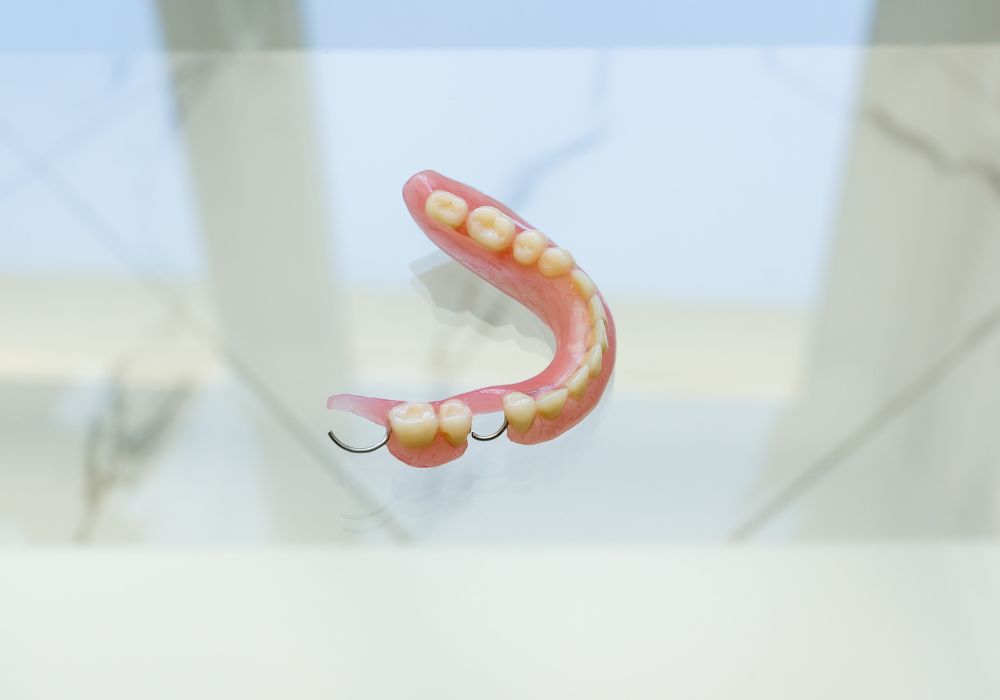
Partial dentures are a great option for those who have lost teeth, but they can also contribute to damage if not properly cared for. Here are some factors that can contribute to damage:
Improper Fitting
If your partial dentures are not properly fitted, they can cause damage to your remaining teeth. This is because the pressure from the partial denture can cause your teeth to shift, leading to misalignment and potential damage. It is important to have your partial dentures fitted by a professional to ensure a proper fit.
Poor Oral Hygiene
Just like with your natural teeth, poor oral hygiene can lead to damage with your partial dentures. If you do not properly clean your partial dentures, bacteria can build up and cause gum irritation, infection, and even decay. It is important to clean your partial dentures daily and brush your remaining teeth twice a day.
Long-Term Use
Over time, partial dentures can contribute to damage simply due to long-term use. This is because the pressure from the partial denture can wear down the remaining teeth and cause them to weaken. It is important to have your partial dentures checked regularly by a professional to ensure they are still fitting properly and not causing any damage.
By being aware of these factors and properly caring for your partial dentures, you can help prevent damage and keep your remaining teeth healthy.
Preventing Damage
Taking good care of your partial dentures is important to prevent any damage to your natural teeth. Here are some tips to help you maintain good oral health and prevent any issues:
Regular Dental Check-Ups
It’s important to visit your dentist regularly, even if you have partial dentures. Your dentist can check the fit of your partials and ensure they are not causing any damage to your natural teeth. They can also identify any issues early on and provide treatment before they become more serious.
During your dental check-up, your dentist will thoroughly clean your teeth and partial dentures, removing any plaque and bacteria buildup. They may also recommend adjustments to your partials to ensure they fit properly and comfortably.
Proper Cleaning and Maintenance
Proper cleaning and maintenance of your partial dentures is crucial to prevent damage to your natural teeth. Here are some tips to help you keep your partials clean:
- Remove your partials and rinse them with water after eating to remove any food particles.
- Brush your partials daily with a soft-bristled brush and mild soap or denture cleaner.
- Soak your partials in a denture cleaning solution overnight to remove any bacteria or buildup.
- Avoid using hot water to clean your partials, as it can cause them to warp or become damaged.
- Brush and floss your remaining natural teeth daily to prevent gum disease and tooth decay.
By following these tips, you can help prevent any damage to your natural teeth and ensure your partial dentures last for years to come. Remember to visit your dentist regularly for check-ups and cleanings to maintain good oral health.
Alternatives to Partials
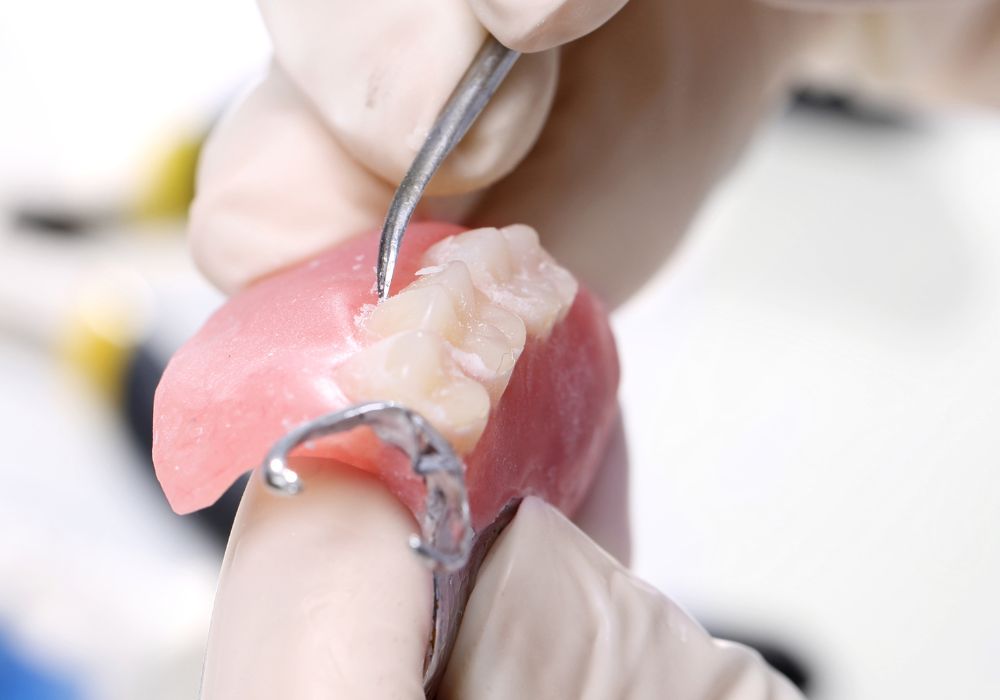
If you’re missing one or more teeth, partial dentures may not be the right solution for you. Luckily, there are alternative options that can help restore your smile and dental function. Here are two common alternatives to partial dentures:
Dental Implants
Dental implants are a popular alternative to partial dentures because they are a permanent solution that looks and feels like natural teeth. The process involves inserting a titanium post into the jawbone, which acts as a replacement for the tooth root. Once the post has fused with the bone, a crown is placed on top to complete the restoration.
While dental implants are more expensive than partial dentures, they offer several benefits, including:
- Improved chewing and speaking abilities
- Increased comfort and stability
- Long-lasting results
- No need for special cleaning or maintenance
Bridges
Dental bridges are another alternative to partial dentures. They are a fixed restoration that involves placing a prosthetic tooth (or teeth) between two existing teeth. The prosthetic tooth is attached to the surrounding teeth using dental crowns, which hold it securely in place.
Like dental implants, bridges offer several benefits over partial dentures, including:
- Improved chewing and speaking abilities
- A more natural-looking restoration
- No need for special cleaning or maintenance
However, bridges also have some drawbacks to consider, including:
- The need to grind down healthy teeth to support the restoration
- A higher risk of decay and gum disease around the supporting teeth
- A shorter lifespan compared to dental implants
When deciding between partial dentures and alternative solutions, it’s important to consult with your dentist to determine which option is best for your individual needs and budget.
Frequently Asked Questions
Can wearing partial dentures cause damage to natural teeth?
Partial dentures are designed to replace missing teeth and improve your oral health. However, wearing them for a long time can cause damage to your natural teeth. The clasps used to hold the partial dentures in place may put pressure on the surrounding teeth, leading to wear and tear. To prevent damage, it’s important to maintain good oral hygiene and visit your dentist regularly for check-ups.
What are some common problems with removable partial dentures?
Some common problems with removable partial dentures include discomfort, difficulty speaking or eating, and gum irritation. Ill-fitting dentures can also cause sore spots and ulcers. It’s important to have your dentures adjusted by a professional to ensure a proper fit and to avoid these problems.
Are there any long-term effects of wearing partial dentures?
Wearing partial dentures for an extended period may cause bone loss in the jaw, leading to changes in facial structure and difficulty chewing. However, with proper care and regular dental check-ups, these long-term effects can be minimized.
What are the advantages and disadvantages of partial dentures?
Partial dentures are a cost-effective solution for replacing missing teeth and improving your oral health. They are removable and easy to clean, making them a convenient option for many people. However, they may require adjustments over time and can cause discomfort or irritation if they don’t fit properly.
How do snap-on false teeth compare to partial dentures?
Snap-on false teeth, also known as snap-on dentures, are a newer alternative to traditional partial dentures. They use dental implants to hold the dentures in place, providing a more secure fit and better chewing ability. However, they are more expensive than partial dentures and may not be suitable for everyone.
Is it better to get partial dentures or full dentures?
The decision to get partial or full dentures depends on your individual needs and oral health. Partial dentures are used to replace one or more missing teeth, while full dentures are used when all teeth are missing. Your dentist can help you determine which option is best for you based on your specific situation.

